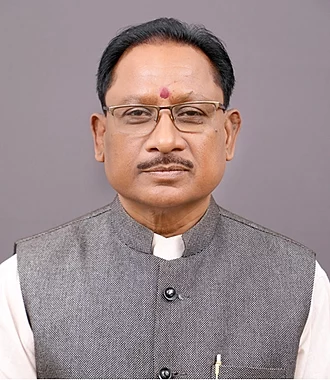Vishnu Deo Sai was the first to announce his decision to not contest the polls in the wake of the 2019 Lok Sabha elections, when Amit Shah as BJP president sent signals to Chhattisgarh’s incumbent MPs that they may be replaced.
Sai however became the sole representative from Chhattisgarh to get a place in Prime Minister Narendra Modi’s first cabinet of 2014 and after the 2019 general election win, the BJP made him, a veteran tribal leader, the party president in Chhattisgarh, in place of another tribal leader, Vikram Usendi.
Last year, Sai was replaced by Arun Sao as state party president after completing his term, on August 9, World Tribal Day.
Sai, considered one of the state’s most trusted tribal leaders in the BJP had a political career that coincided with that of former CM Raman Singh, also in the running.
With the BJP winning 54 seats in the 90-member assembly and further weakening the Congress nationally, what played a decisive role in a state like Chhatisgarh was the tribal votes, especially in the Bastar and Surguja districts.
The party got 8 seats in Bastar and 14 in Surguja, where it fielded not only Sai, but former Union minister Renuka Singh and Member of Parliament Gomati Sai as well, as it looked to bring back lost tribal support.
In a state and polity where caste equations play a significant role, the BJP’s new tribal Chief Minister in Chhattisgarh, will have two deputies, state BJP chief Sao, leader from the Other Backward Classes and Vijay Sharma, a Brahmin.
The party also included former CM Raman Singh, BJP sources said Singh, who served the state as chief minister over three terms between 2003 and 2018.
Mr Singh, a Rajput, who was also a contender for the top post this time, has been appointed as the Assembly Speaker.
Stay updated with all the insights.
Navigate news, 1 email day.
Subscribe to Qrius

